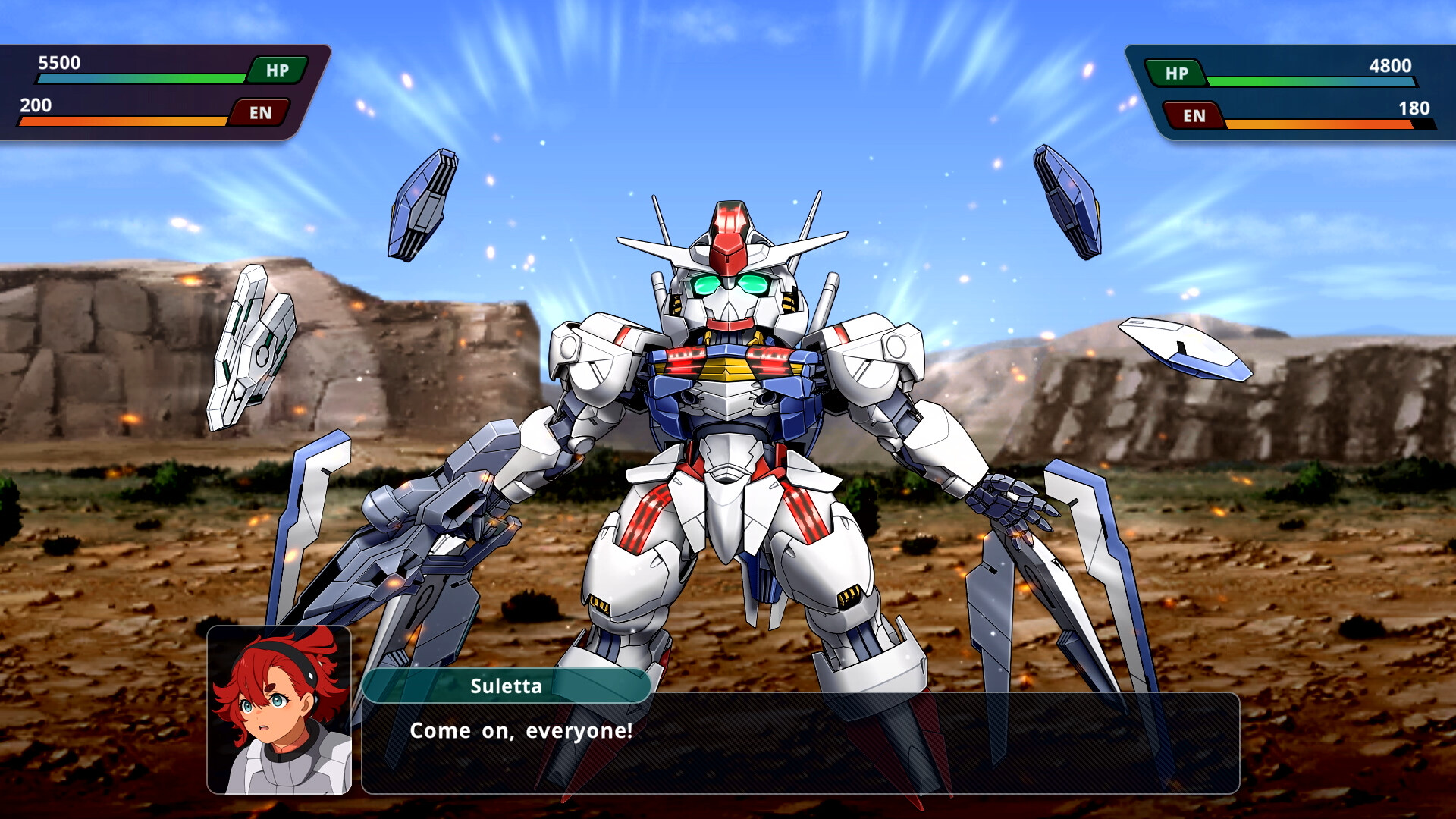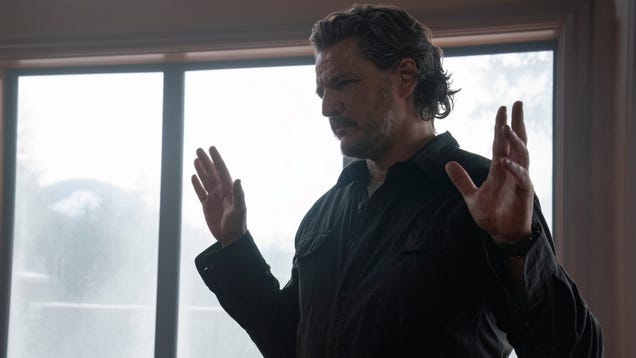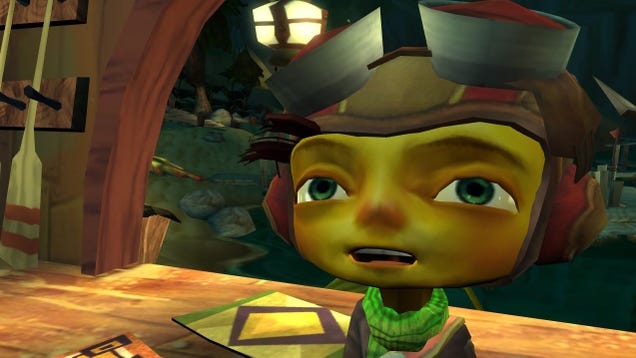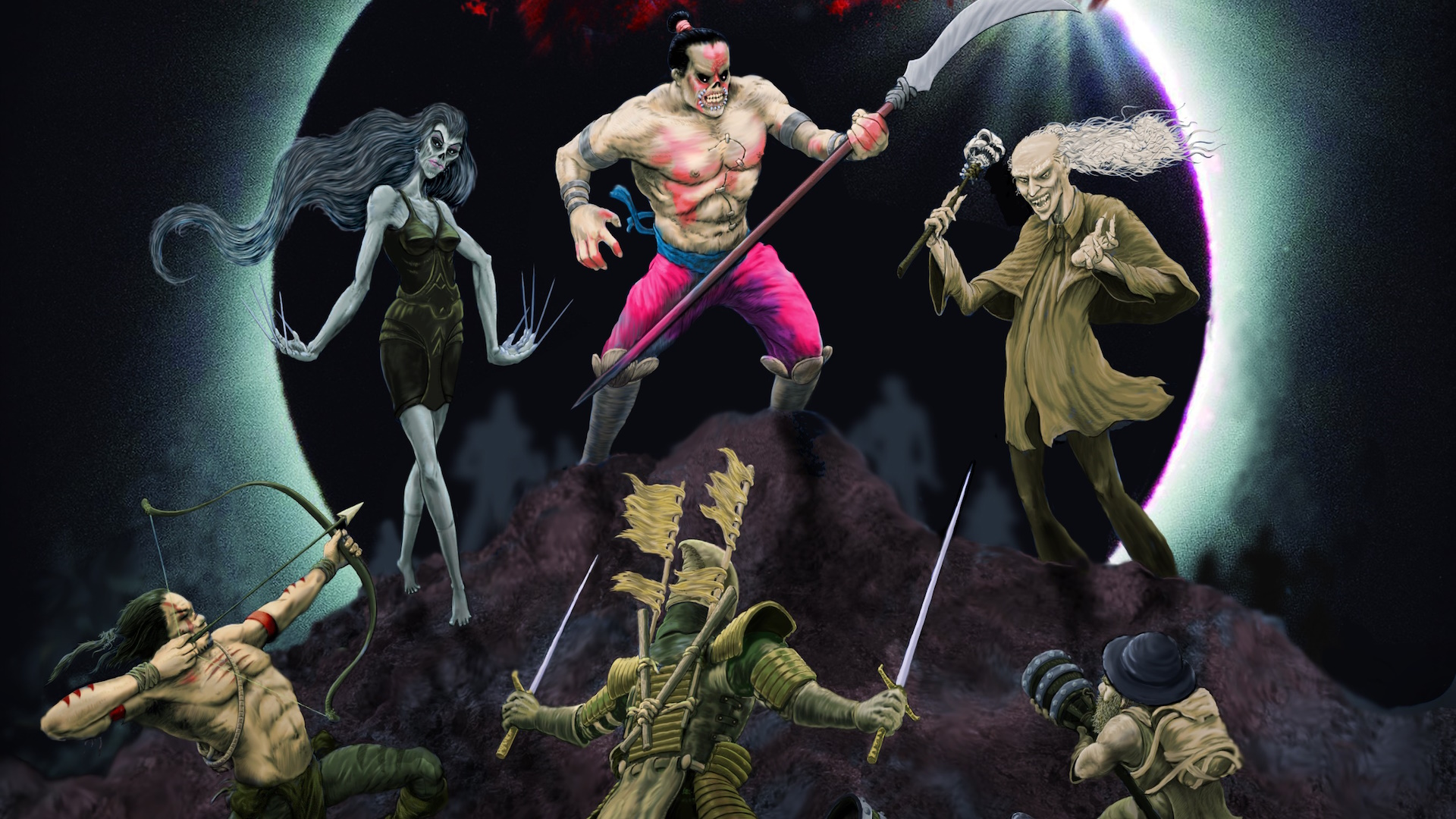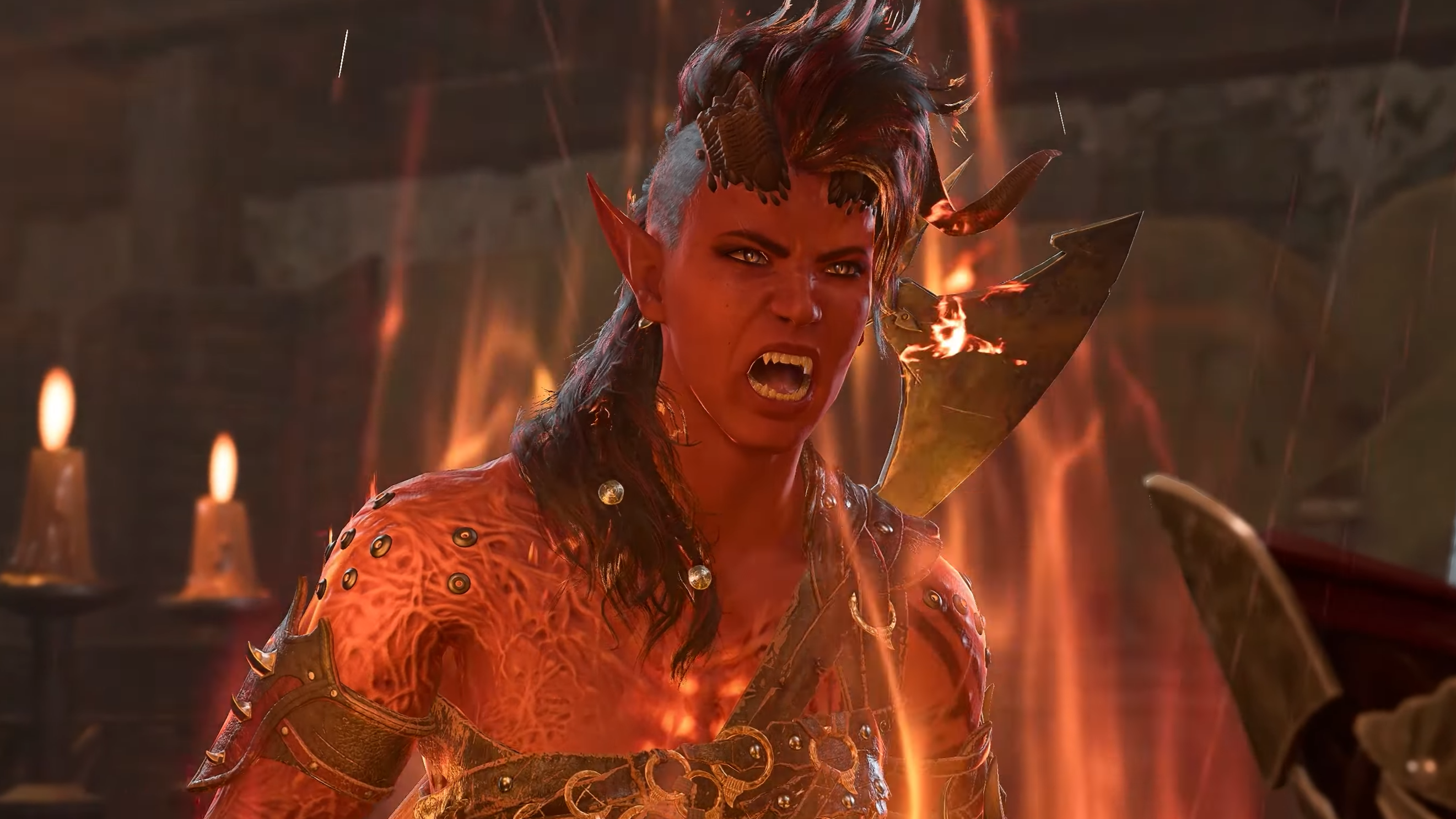
I do love a baa-room brawl.
I’m now 200+ hours deep in Baldur’s Gate 3 and midway through my third run, a massive time sink I have decided to blame on a teenager-strength crush on Astarion and the slightly more sensible desire to really sink my teeth into the magnificent battle system. I want to fully understand it. I want to wear the shiny “Critical Hit” achievement from clearing the game on its hardest difficulty like a badge of honour. I want to set someone who isn’t on my side on fire for once.
More desperate than a horny Bhaalspawn to keep playing, I knew what I had to do: start my third run on Tactician, Baldur’s Gate 3’s hardest difficulty.
After playing the game once on easy and once on normal, Tactician has been quite an adjustment. Everything hits harder, acts smarter, and I swear some enemies are pulling off moves I haven’t seen them do before. I can’t panic-spam my most powerful spells and skills the instant a fight gets bloody anymore, especially as this mode demands double the amount of supplies to fully restore everyone’s health and special abilities with a long rest. Instead I have to hold back and think about how to use everything I’m carrying, as well as everything around me, to cause the most trouble in the most efficient way possible.
Now that I’m forced to be creative, I’m realising just how much fun it is to do more than hit monsters really hard. It’s not just about the explosive barrels begging to be introduced to a flaming cantrip, but all the other details I didn’t even consider before:
A burning brazier hanging from the ceiling is a golden opportunity to drop a bowl of fire on someone’s head, or at least force them to take a little damage as they charge at me through the burning cinders.
Yes, that conspicuously unstable stone statue really can come down on the heads of my foes (or mine, again, if I’m not careful).
The Create Water spell (or a bottle of the stuff, lobbed with enthusiasm) isn’t a weird invitation to give my enemies soggy feet, it’s the exciting first step in a horde-disrupting mass electrocution.
The shining barrier surrounding the Last Light Inn isn’t a cute decoration there purely for the story’s sake, it’s a holy wall of light that’ll burn any shadow-cursed enemy I can shove into it—and forcefully transforming my enemies into sheep makes shoving them into whatever death trap I can find or create that much easier.
(Image credit: Larian)
Before Tactician, my party makeup was pretty much determined by whoever had recently spoken up, without much care for how they fit together. It might get a little messy, but I’d still win. Now, though? Any fight with the undead means Shadowheart’s out with her Spirit Guardians spell on, causing heavy damage to anything the radiant aura touches before she even thinks about spending a precious action point. Gale’s skills are best suited to large, open areas that give his most devastating magic room to breathe. Lae’zel’s multi-attacks combined with her Action Surge ability wreak similar havoc in close quarters. The amulet that gives a character Misty Step is the perfect tool to send a sneaking Astarion up to a high vantage point, ready to rain specialist arrows down on my foes. An owlbear-shaped Jaheira can be a path-blocking wall of claws and fury under the right circumstances—and a turn-wasting lump of feathers when I mess up her positioning.
By forcing me to consider these characters in their entirety, rather than just the vessels for fun stories who I dress up in nice armour to hit things with, I’ve ended up with a far more varied and interesting experience. All of my tadpoled team’s best and worst traits matter all the time, not just when I bother to pay attention to them.
This is assuming I fight at all, of course. There was one battle in the Temple of Shar that has always given me trouble, and it was no different this time around. I repeatedly threw myself at it, I reloaded when I made stupid decisions, I tried everything I could think of, but it always ended the same way. And then I remembered I’d seen people talking their way into a win here, and kicked myself for not doing it earlier.
Did I lose a little XP for literally talking an enemy to death? Maybe. Did I save myself an afternoon’s worth of reloads and leave that place with a huge smile on my face? Definitely.
(Image credit: Larian)
(Image credit: Larian)
Baldur’s Gate 3 guide: Everything you need
Baldur’s Gate 3 tips: Be prepared
Baldur’s Gate 3 classes: Which to choose
Baldur’s Gate 3 multiclass builds: Coolest combos
Baldur’s Gate 3 romance: Who to pursue
Baldur’s Gate 3 co-op: How multiplayer works
Tactician difficulty actually leaves me feeling retroactively disappointed in all the other RPGs—and I’ve played a lot of RPGs—that made me believe bashing every enemy with a lump of metal was enough. I’m a little disappointed with myself too, for only thinking within the strict boundaries other games have imposed for so long. I’d forgotten things could be different. I could have been watching ogres slip on sheets of ice all this time, or knocked countless more baddies prone with bard-inflicted magical fits of laughter.
More than almost any other RPG, Baldur’s Gate 3 manages to consistently fulfil the core videogame fantasy of “If I think I can do it, I probably can.” That rickety bridge that a marauding mob of bandits have just piled on really can fall away while they’re standing on it, instantly cutting their forces down by a tide-turning amount. I didn’t even need to consider doing anything like that before, not when the lower difficulty settings gave my party enough extra health to absorb unnecessary damage as they blindly charged ahead, flimsy wizards and sturdy warriors alike.
I had a similar revelation in a winery full of drunk kobolds and leaking barrels of spirits: why race in for a lengthy resource-draining scrap when I could sneak attack the one passed out by the door and then ignite every sloshed drop of alcohol in the entire room with a few no-cost fireballs before half of them even realised I was there? Never before has “Fight smarter, not harder” lead to such a satisfying display of pyrotechnics.
This new challenge isn’t “Baldur’s Gate 3 but harder”—this is Baldur’s Gate 3 unleashed, and I swear I’m never playing the game on another difficulty setting ever again. I don’t want to be safe or comfortable: I want to watch my enemies fall into my trap, whether it’s been cunningly laid in advance or hastily improvised.
(Image credit: Larian)
I want to quietly shut the door behind me when I enter the room containing a surly NPC with a fat stack of HP, and then split my party into Team Chatty Distraction and Team Sneak Attack to punch above my weight.
I want to watch my clever plans fall apart before my eyes and then snatch victory from the jaws of defeat with the Otto’s Irresistible Dance scroll I’ve had stashed away for 20 hours.
It’s the best way to play, even if it does bring out the absolute worst in me. Oh no, did I deliberately goad you into attacking me? And you’re sure I’ll never leave this place alive now that you’ve called for reinforcements and you’ve activated all the traps? Brilliant. That just means I’ve got more to work with.
I used to worry when Baldur’s Gate 3’s scuffles got a little complex. But now? Whenever I hear a certain sarcastic bloodsucker gleefully say “Let’s turn someone inside out,” I can’t help but pause for a moment and figure out the most elaborate way to make it happen.

